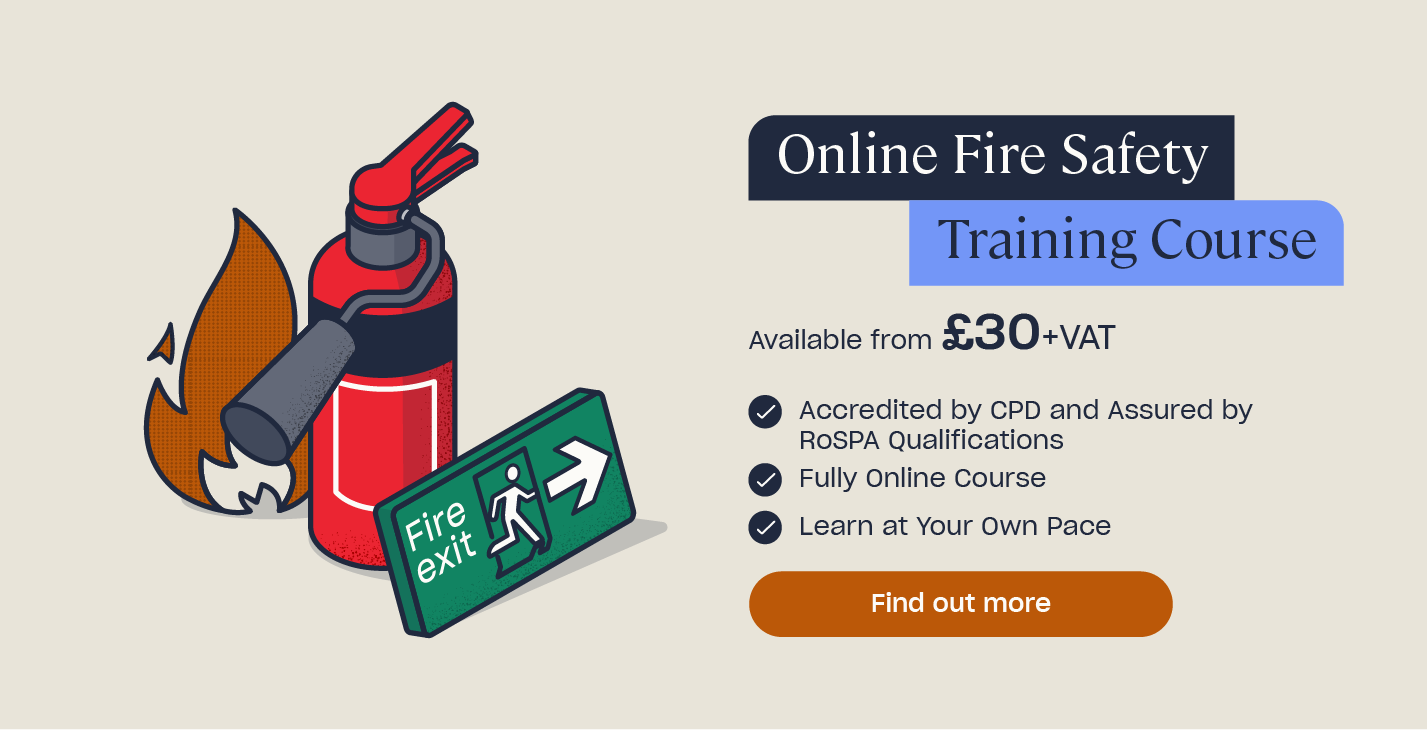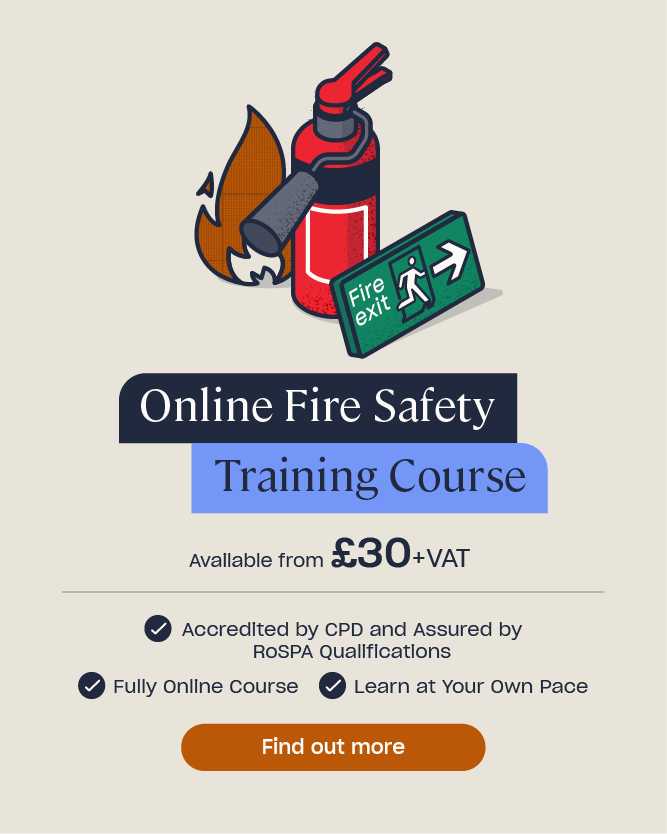Burning Rubbish: What are the Rules and Regulations?
When the bins are full and you can’t take your rubbish to the tip, it can be tempting to light a bonfire in your back garden to get rid of it all. While it’s technically not illegal to do so, you should be aware of certain regulations that control the way in which you can have one, and the type of waste you can and can’t burn.
These regulations are essential for ensuring you don’t put your and others’ wellbeing at risk. Not only can bonfires easily go wrong and cause uncontrollable fires if poorly planned, but they can also pollute the air with harmful fumes, particles, and smoke.
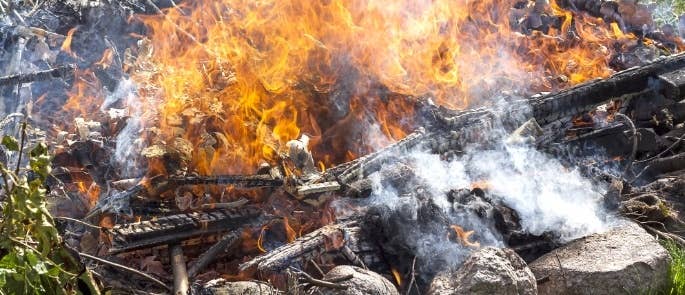
If you’re thinking about having a bonfire – whether it’s to burn the remains of your pruned hedges, or to celebrate the 5th of November – you should familiarise yourself with the current guidance as set out by local fire safety authorities and environmental regulations.
This article will clarify all these requirements for you, so you can avoid causing a nuisance or harm to anyone nearby.
Is It Legal to Burn Rubbish in My Garden?
According to government guidance, there are no laws that prohibit you from burning rubbish and lighting bonfires in your garden. However, there are rules in place to prevent bonfires from causing a nuisance to neighbours or a hazard to safety, and there are certain types of waste you can and can’t burn.
These rules include the following:
- It is an offence under the Environmental Protection Act 1990 (as amended) to dispose of domestic waste in a way that can cause pollution to the environment or harm to human health, such as by burning it. This means you must not burn certain types of waste that can create excessive smoke and fumes.
- Under section 161A of the Highways Act 1980, you cannot allow smoke from a fire to drift across a nearby road. You will face a fine if it poses a danger to traffic or leads to injury.
- If bonfires are recurrently bothersome to the point that they affect a person’s enjoyment of their property (such as smoke and ash drifting into their garden), then the bonfire may be considered a nuisance and this can result in an ‘abatement notice’. Failing to adhere to a notice could lead to a fine of £5,000.
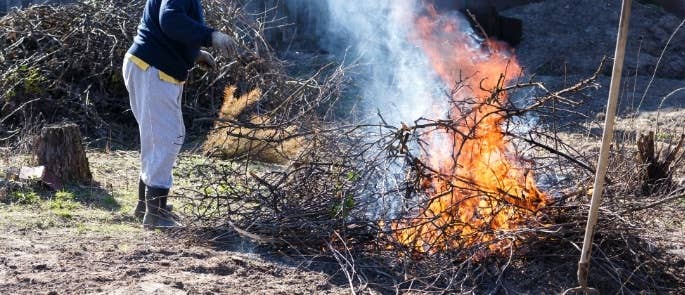
How to Follow the Rules for Safe Bonfires
To prevent your bonfire from posing a risk to your and others’ health and safety, you should familiarise yourself with the rules and recommendations for having them. Below are some common queries for burning rubbish in the UK, as well as guidelines issued by many local councils and published by Environmental Protection UK.
What Time Can I Burn Rubbish in My Garden?
There are no set times or days for when you are permitted to have a bonfire – you can technically do so whenever you like. However, it’s recommended that you choose a time in the early morning or early evening when your neighbours are less likely to be affected.
Even if you choose a courteous time, you should still pay attention to whether your bonfire could cause a nuisance. Do your neighbours have their washing out? Is it a hot day and they have their windows open? Are your neighbours planning to use their garden? Is it a particularly windy day?
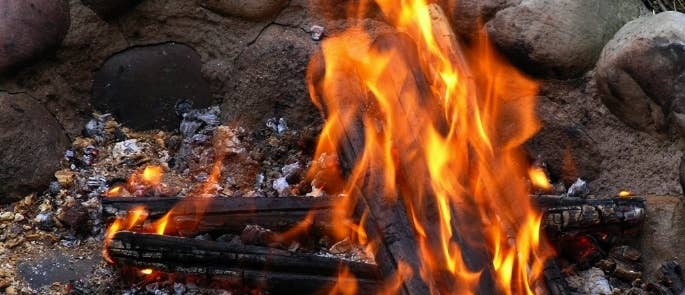
Consider popping over to let your neighbours know your plans, so you can work around each other’s schedule. Prior warning can give them time to bring in any washing and to avoid using their garden during your bonfire. Plus, it can prevent them from calling 999 – they may otherwise spot the fire and think it’s an emergency.
What Type of Rubbish Can and Can’t I Burn?
Your bonfire must not cause pollution to the environment or harm to human health, which means you need to avoid burning certain materials that can generate excessive smoke and toxic fumes. The particles that are created by a fire can spread and linger in the air, causing nuisance or health issues for others, such as triggering asthma.
Therefore, you should adhere to the following guidance:
- You must only burn dry materials, such as paper and untreated wood.
- You must not burn household waste, e.g. food and plastic packaging, that should go into your general waste or recycling bins.
- Don’t burn plastic, polystyrene, aerosols, tyres, canisters, painted or treated wood, or anything containing foam or paint. Doing so can create fumes and pollutants that can harm people, as well as pets and any nearby wildlife.
- Do not burn damp waste, as this creates more smoke.
- Don’t burn garden waste if it is green and/or damp, such as recent hedge or tree trimmings. This type of waste will produce excessive smoke. Many local councils provide bins for garden waste, so you don’t have to burn it. Dry garden waste is safe to burn.
- Do not use oil, petrol, or spirits to fuel the fire, as it could get out of control and can spread fumes.
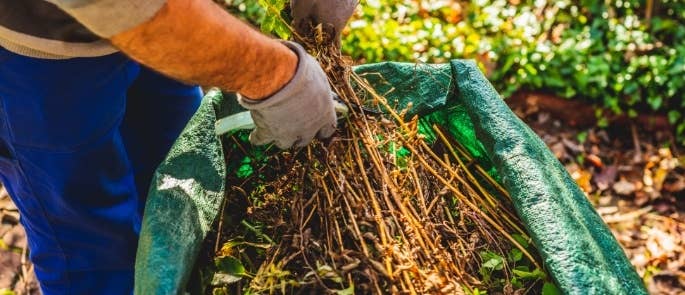
You should also be aware that you’re not permitted to burn waste from other households (such as waste from a neighbour) or from trade or business activities. Doing so requires an environmental permit.
What Are Some Tips for Having a Bonfire?
To ensure your bonfire is as safe and environmentally friendly as possible, there are some factors to consider and steps you should take:
- Ensure your bonfire is well away from buildings, sheds, fences, trees, hedges, overhead cables, and anything else nearby that could catch alight. You should also ensure its location will not cause smoke to drift into a road.
- Do not leave the fire unattended at any time.
- Keep children and pets away from the bonfire. You may want to keep them inside.
- Prepare a bucket of water or hose to have nearby, or an extinguisher if you have one, so you can put out the fire when finished or if it starts getting out of control.
- Ensure the bonfire is stable – if it were to collapse the fire could spread.
- Start small – you don’t need to pile everything onto it at the start. You can add more to the bonfire as you go, when you are confident you can control it.
- Pay attention to the wind speed and direction. It’s best if the wind is blowing away from any neighbours’ properties.
- Look out for animals or wildlife, who often hibernate or take refuge in piles of garden waste.
- Ensure you extinguish the fire fully and do not leave it smouldering, as it could restart. Douse any remaining embers with water and/or cover it with soil.
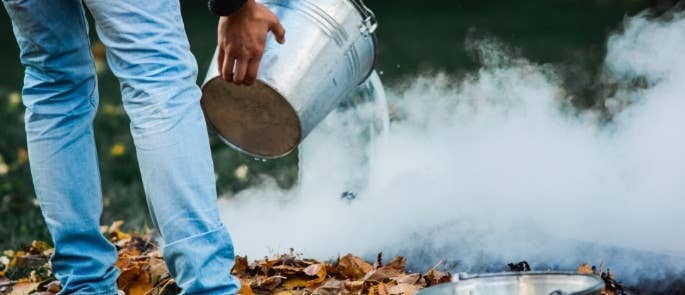
If at any point you lose confidence in your ability to control the fire or put it out, call 999 immediately.
Should I Notify Anyone About My Bonfire?
While there are no legal requirements to notify anyone about a bonfire, as mentioned earlier you should be considerate and let your neighbours know. You may also want to notify your local authority on a non-emergency number. They are often alerted to fires that are believed to be an emergency but turn out to be controlled bonfires or land clearance. Giving them prior warning ensures they aren’t unnecessarily called out.
For example, West Yorkshire Fire and Rescue Service ask that you notify them if you’re planning to have a sizeable bonfire in your garden or on other land, any sort of fire on farmland, or stubble burning. They ask to be notified about the exact location of the fire, the times you are planning to let the fire burn, and a contact number for yourself or whoever will be responsible for the site.
What are Some Alternatives to Burning Rubbish?
As many materials are unsafe to burn and you may not be able to have a bonfire safely (such as if you don’t have enough room in your garden), you should be aware of alternative methods for getting rid of your waste.
Use Council Bins and Waste Collection Services
Don’t be tempted to burn household waste. Use your general waste and recycling bins, as well as garden waste bin and/or food waste bin if you have them.
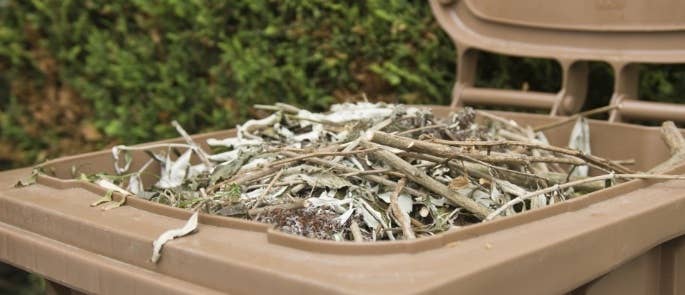
Your local council may even offer large waste item collection in your area, such as old furniture, so make sure you check their website to see what sort of options they have before you resort to burning. You can also call on private waste companies that provide home collection. If you use a private collection company, make sure you check they have a waste carriers licence to remove waste.
Use Your Local Tips and Recycling Centres
Before starting up a fire, you should first think about whether you can take waste to your local tip or recycling centre. They can handle it in a much safer and eco-friendly way than you burning it in your back garden.
Use a Shredder / Chipper for Garden Waste
If you really can’t stand having your tree trimmings sitting around or it won’t fit into your garden waste bin, you may want to purchase garden waste chippers or shredders. This will enable you to fit more into the bin, keep it out of the way in a bag, dry it out and burn it easier, or even reuse it in your garden or composting.
Start Composting Food and Garden Shredding
You should not burn domestic waste such as food, so if for whatever reason you want to get rid of it other than in your general bin, consider composting it instead. This can act as an excellent fertiliser for your garden and even save you money on buying it specially. You can add shredded garden waste to it too.

If you do decide to compost, make sure you do your research about what type of composting you’re going to create, how to keep pests out, and what you should and shouldn’t add to it. For example, a worm compost bin is suitable for vegetable peelings, fruits and vegetables, and waste paper and cardboard, but not for cooked food, meat, or dairy products.
While a bonfire may seem like a quick, easy, and even novel way for disposing of waste, as you’ve learnt here there are rules in place to prevent it from being a nuisance or posing risks. Make sure you follow the guidance set out in this article and provided by your local authorities if you do plan to have a bonfire, or consider alternative means to eliminate the challenges altogether. Whatever you decide to do, stay safe and sensible.
What To Read Next:
- Online Fire Safety Training Course
- How to Dispose of Construction Waste
- How to Reduce Food Waste at Home
- BBQ Fire Safety: Regulations and Tips
- Bonfire & Firework Safety: Assessing the Risks


